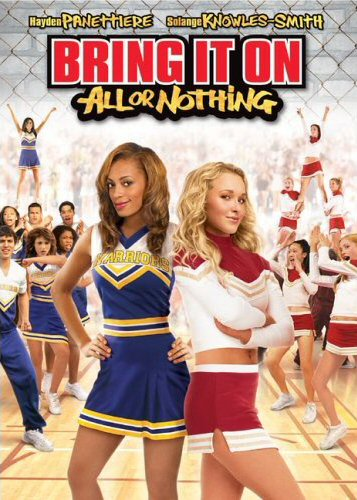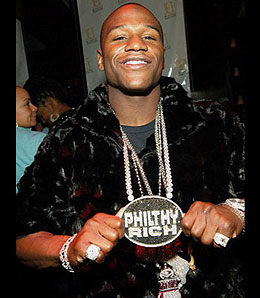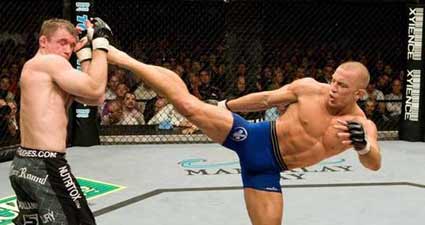What’s in a sport?
 Last week an old chestnut of an argument reared its head when a judge ruled that according to NCAA and Title IX rules competitive cheerleading is not a sport.
Last week an old chestnut of an argument reared its head when a judge ruled that according to NCAA and Title IX rules competitive cheerleading is not a sport.
Quinnipiac University in Hamden, Connecticut had cancelled their women’s volleyball program in favour of the seemingly more lucrative cheerleading team. The volleyball team’s coach sued on the grounds that cheerleading doesn’t meet NCAA rules or the Title IX law.
Using those standards the judge ruled that volleyball is more of a sport than its peppy replacement.
Almost immediately there was an outcry from the cheerleading community, crying foul and defending the honour of their beloved athletic pursuit. This brings us to that previously mentioned chestnut: what constitutes a sport?
Hampton Stevens wrote a well-considered response to the debate for the Atlantic’s website today. He argues that cheerleading is not a sport because the winners are decided by a subjective judging system.
In Stevens’ mind there are three qualities to a sport:
- People compete at it.
- Computers can't do it.
- Aesthetics don't count.
He cites examples too. Chess is not a sport because computers can play it. Croquet is a sport though, because there is a clear objective measure of the winner.
I agree with Stevens in principle. In fact, a source of much acrimony in my household this winter was my ongoing criticism of several of the “non-sports” at the Vancouver Olympics.
Like Stevens, I place a great deal of importance on the objectivity of the activity. As soon as judges are holding up signs with scores, I lose interest. However, even I can see a glaring omission in Stevens’ argument: boxing and other combat sports regularly go to a judges’ decision.
If there’s a close match, the judges have to decide the bout based on who dominated the fight, particularly which boxer landed the most head shots on their opponent. In other words, they have to decide how well each pugilist boxed. They have to judge the match on the aesthetics of each fighter’s strategy and style.
Judges miss landed blows and there’s often some interpretation of what is and isn’t a head shot. Also, we’d be kidding ourselves if we thought boxing judges were not corrupt or biased.
I’m not saying that boxing is as subjective as cheerleading or figure skating, but I think it’s important to acknowledge that all sports have a certain aesthetic aspect to them – even in the most cut-and-dry sports like sprinting judging can play a significant role in false starts and photo finishes.
That said, Stevens and the Connecticut judge are both right: cheerleading is far too subjective to be considered a sport.
Twitter buzz - While writing this article I posed the question to my Twitter followers:
@jchidleyhill Is cheerleading a sport? What constitutes a sport?
I got a few responses from my followers, including:
@rubedawg83 - Competition based on participants using BOTH physical and mental tools. Cheerleading - Yes, Chess & Fishing – No
@ToryBachmann - [...] Yes cheerleading is a sport
@Novinarwriting - Hmm Hard to take 'sports' shows like pool/darts/poker seriously
@twharry - Any sort of athletic activity where you can legitimately pull a groin while competing is a sport.
Floyd Mayweather has the right idea
 Earlier today it was announced that boxing superstar and WBO champion Manny Pacquiao has agreed to WBC champion Floyd Mayweather’s demands and will submit to random drug screening as part of a deal to make a dream welterweight match happen.
Earlier today it was announced that boxing superstar and WBO champion Manny Pacquiao has agreed to WBC champion Floyd Mayweather’s demands and will submit to random drug screening as part of a deal to make a dream welterweight match happen.
“As long as they’re not getting a large amount of blood, I am willing to give out blood as close to two weeks before the fight,” Pacquiao told the Bulletin late Wednesday night.
This is the second time the two pugilists have agreed to fight; their first encounter was cancelled when Pacquiao refused to be tested for performance enhancing drugs, a procedure that Mayweather insists that he and all of his opponents go through.
Whoever wins this match will be considered the best pound-for-pound boxer in the world. It promises to be an exciting pairing, one that fans of the sweet science have been clamouring for for years.
Some corners feel that this was simply an excuse for Mayweather to duck the seemingly superior Pacquiao. That the drug tests are a stalling tactic by Mayweather to protect his perfect record.
I’m not sure that this is the case. I hope not, because I think that Mayweather has the right idea.
With so many athletes in so many sports testing positive for steroids, human growth hormone or even recreational drugs, many fans are becoming increasingly cynical. Steroid scandals have dealt body blows to the reputations of baseball, cycling and the Olympics.
By voluntarily submitting blood samples to the United States Anti-Doping Agency Mayweather is not just protecting his legacy, but improving the tarnished image of sports.
It’s a breath of fresh air, and particularly refreshing given the sorry state that boxing is in. The sweet science is losing ground to mixed martial arts by the day. This is a sport that has too many titles, too many flashes in the pan.
But Mayweather’s aggressive pro-testing stance means that boxing’s dwindling number of fans, whether they like him or not, at least know that there is some integrity whenever he steps in the ring.
Personally, if I were a professional athlete in any other sport I would be doing the same thing. By getting voluntarily tested on a monthly basis for the duration of my career, there would be no doubt about the veracity of my records.
This is especially topical since disgraced Tour de France winner Floyd Landis revealed to his sponsors today that he has been doping since 2002.
If I were another professional cyclist I would want to guarantee that everyone knew that I was clean, no matter how well I did. A sure-fire way to do that would be to hold myself to an even higher standard than that of by sports’ governing body.
Although the North American legal system relies on burden of proof – that everyone is innocent until proven guilty – this isn’t about laws. This is about regaining the public’s trust and establishing a reputation of integrity. In that respect, Floyd Mayweather is doing the right thing.
McGuinty continues to miss out on mixed martial arts
One of the leading sports issues in Ontario came to the fore Wednesday when Premier Dalton McGuinty said that the legalisation of mixed martial arts in the province is not a priority for his government.
This is the latest development in what has been a seemingly interminable struggle. Ultimate Fighting Championship’s president Dana White has lobbying for the introduction of MMA prize fights into the province, while Ontario Athletic Commissioner Ken Hayashi has stymied him.
"We have higher priorities when it comes to developing [potential] jobs and strengthening the economy," said McGuinty on Wednesday, effectively tabling the debate in Ontario for the foreseeable future.
Although it’s a setback for the pro-MMA camp, they have time, logic and money on their side. Even a cursory examination of the facts makes it clear that hosting a UFC event in Toronto would be easy to arrange, safe for fans and athletes as well as a financial boon to the city’s tourism industry.
Although Premier McGuinty makes it sound like it would be a Herculean task to overturn the Criminal Code’s law against prize fighting, it’s really not an insurmountable problem.
Nova Scotia, Quebec and Manitoba have all approved the staging of these cards, as have municipal athletic commissions in Calgary, Edmonton, Prince George, B.C., and several other B.C. communities also sanction MMA events.
In theory, the Ontario Athletic Commission could override the law simply by approving an MMA event. However, Hayashi firmly believes that he would be charged with assault if he did that, and so UFC fans shouldn’t hold their breath.
Instead the Ontario government could conduct a thorough examination of the issue, much like the one undertaken by Vancouver’s City Council in December. In that case it only took city staff took a few months to put together a comprehensive report that came out in favour of MMA events.
Chris Parry of the Vancouver Sun highlighted most of the pertinent details, but the passage that sticks out is the section on safety:
“Injury rates in MMA competitions have been examined in several studies. The most extensive of these is a 2008 study published in the British Journal of Sports Medicine that examined injuries to fighters in sanctioned bouts in Nevada State between 2002 and 2007. That study concluded that injury rates in regulated professional MMA competitions are similar to rates in other combat sports and that the overall risk of critical sports-related injury appears low. The report notes that a majority of MMA sanctioned bouts end via decision or submission (surrender of one fighter). This is thought to help explain the lower incidence of knockouts in MMA compared to boxing [Bledsoe et al, 2005]. A comparison of injury rates in MMA and boxing is shown in Table 1.”
Table 1 then contrasts boxing and MMA injuries:
“Overall injuries per 100 fight exposures: MMA 23.6, boxing 17.1 to 25
Concussion rate per 100 fight exposures: MMA 1.65, boxing 5.6
% fight ends in knockouts: MMA 3.3%, boxing 11.3%”
Clearly, if boxing is safe enough for Ontario, then MMA should be as well.
Then there’s the money: It’s expected that a major MMA event in Toronto (likely organized by the UFC) would generate millions of dollars in revenue for the cash-strapped province. Tax money and the usual influx of currency for hotels, restaurants and other trappings that stem from tourism would all stimulate the economy.
Granted, there’s always the possibility that a major sporting event will flop and not draw as well as it’s supposed to. However, Ontario as a whole is one of the biggest markets for MMA pay-per-view buys and the city of Toronto, with one of the larger populations in North America, could easily play host to a successful card.
So what’s the hold up? Political will.
McGuinty first said he’d consider the sanctioning of mixed martial arts months ago. Although he did see a swell of support for the move, it probably wasn’t enough to push the project forward.
Like most sporting events, including the Olympics and World Cup, no one can exactly predict what kind of an impact an event like a major pay-per-view will do for a city or province, and that kind of uncertainty is not attractive to an embattled premier.
It’s his loss. The debut of mixed martial arts in Ontario is inevitable. It’s too safe, popular and financially viable to be denied for long. It will happen eventually and McGuinty might as well be on board when it happens.
